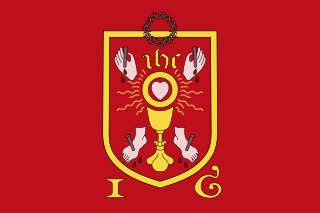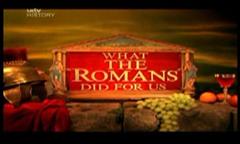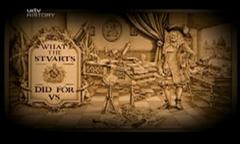
Henry VIII was King of England from 22 April 1509 until his death in 1547. Henry is best known for his six marriages and his efforts to have his first marriage annulled. His disagreement with Pope Clement VII about such an annulment led Henry to initiate the English Reformation, separating the Church of England from papal authority. He appointed himself Supreme Head of the Church of England and dissolved convents and monasteries, for which he was excommunicated by the pope.

The Scientific Revolution was a series of events that marked the emergence of modern science during the early modern period, when developments in mathematics, physics, astronomy, biology and chemistry transformed the views of society about nature. The Scientific Revolution took place in Europe in the second half of the Renaissance period, with the 1543 Nicolaus Copernicus publication De revolutionibus orbium coelestium often cited as its beginning.

The House of Tudor was a dynasty of largely Welsh and English origin that held the English throne from 1485 to 1603. They descended from the Tudors of Penmynydd and Catherine of Valois. The Tudor monarchs ruled the Kingdom of England and its realms, including their ancestral Wales and the Lordship of Ireland for 118 years with five monarchs: Henry VII, Henry VIII, Edward VI, Mary I and Elizabeth I. The Tudors succeeded the House of Plantagenet as rulers of the Kingdom of England, and were succeeded by the House of Stuart. The first Tudor monarch, Henry VII of England, descended through his mother from a legitimised branch of the English royal House of Lancaster, a cadet house of the Plantagenets. The Tudor family rose to power and started the Tudor period in the wake of the Wars of the Roses (1455–1487), which left the main House of Lancaster extinct in the male line.

Adam John Hart-Davis is an English scientist, author, photographer, historian and broadcaster. He presented the BBC television series Local Heroes and What the Romans Did for Us, the latter spawning several spin-off series involving the Victorians, the Tudors, the Stuarts and the Ancients. He was also a co-presenter of Tomorrow's World, and presented Science Shack.

Arthur, Prince of Wales, was the eldest son of King Henry VII of England and Elizabeth of York, and an older brother to the future King Henry VIII. He was Duke of Cornwall from birth, and he was created Prince of Wales and Earl of Chester in 1489. As the heir apparent of his father, Arthur was viewed by contemporaries as the great hope of the newly established House of Tudor. His mother, Elizabeth, was the daughter of the Yorkist king, Edward IV, and his birth cemented the union between the House of Lancaster and the House of York.

George Boleyn, Viscount Rochford was an English courtier and nobleman who played a prominent role in the politics of the early 1530s as the brother of Anne Boleyn, second wife of King Henry VIII. George was the maternal uncle of Queen Elizabeth I, although he died long before his niece ascended the throne. Following his father's promotion in the peerage in 1529 to Earl of Wiltshire and Earl of Ormond, he adopted his father's junior title Viscount Rochford as a courtesy title. He was accused of incest with his sister Anne during the period of her trial for high treason, as a result of which both were executed.
The invisible hand is a metaphor inspired by the Scottish moral philosopher Adam Smith that describes the incentives which free markets often create for self-interested people to act in the public interest. Smith originally mentioned the term only in specific examples. It is used once in his Theory of Moral Sentiments when discussing the concentration of wealth. More famously, it is also used once in his Wealth of Nations, when arguing that international traders can be trusted if the incentives are right, often making it unnecessary for governments to intervene.
Tomorrow's World is a former British television series about contemporary developments in science and technology. First transmitted on 7 July 1965 on BBC1, it ran for 38 years until it was cancelled at the beginning of 2003. The Tomorrow's World title was revived in 2017 as an umbrella brand for BBC science programming.

The Pilgrimage of Grace was a popular revolt beginning in Yorkshire in October 1536, before spreading to other parts of Northern England including Cumberland, Northumberland, Durham and north Lancashire, under the leadership of Robert Aske. The "most serious of all Tudor period rebellions", it was a protest against Henry VIII's break with the Catholic Church, the dissolution of the lesser monasteries, and the policies of the King's chief minister, Thomas Cromwell, as well as other specific political, social, and economic grievances.

The English Renaissance was a cultural and artistic movement in England during the late 15th, 16th and early 17th centuries. It is associated with the pan-European Renaissance that is usually regarded as beginning in Italy in the late 14th century. As in most of the rest of Northern Europe, England saw little of these developments until more than a century later within the Northern Renaissance. Renaissance style and ideas were slow to penetrate England, and the Elizabethan era in the second half of the 16th century is usually regarded as the height of the English Renaissance. Many scholars see its beginnings in the early 16th century during the reign of Henry VIII. Others argue the Renaissance was already present in England in the late 15th century.

The Tudor rose is the traditional floral heraldic emblem of England and takes its name and origins from the House of Tudor, which united the House of Lancaster and the House of York. The Tudor rose consists of five white inner petals, representing the House of York, and five red outer petals to represent the House of Lancaster.
Groom of the Robes is an office in the Royal Household of the Sovereign of England. In 1953, the Groom of the Robes to Elizabeth II had the task of bringing forward the robes and other items of ceremonial clothing worn by the monarch at various points in the coronation service, ready to hand them over to the Mistress of the Robes and the Lord Great Chamberlain and to receive and remove those which were no longer required.

What the Ancients Did for Us is a 2005 BBC documentary series presented by Adam Hart-Davis that examines the impact of ancient civilizations on modern society.

Emery Molyneux was an English Elizabethan maker of globes, mathematical instruments and ordnance. His terrestrial and celestial globes, first published in 1592, were the first to be made in England and the first to be made by an Englishman.
Protestantism is the largest religious demographic in the United Kingdom.

What the Romans Did for Us, is a 2000 BBC documentary series "looking at the innovations and inventions brought to Britain by the Romans". The title of the programme is derived from the cult film Monty Python's Life of Brian, referencing the famous scene where the People's Front of Judea discuss "What have the Romans done for us?"

What the Stuarts Did for Us is a 2002 BBC documentary series that examines the impact of the Stuart period on modern society.

What the Industrial Revolution Did for Us is a BBC documentary series produced in conjunction with the Open University that examines the impact of the Industrial Revolution on modern society. It was originally broadcast on BBC Two from 7 October to 11 November 2003.
The Eltham Ordinance of January 1526 was the failed reform of the English court of Henry VIII by Cardinal Thomas Wolsey. It is named after the Eltham Palace in Kent where Wolsey devised his plan. The Ordinance, which targeted Wolsey's influential opponents from the Privy chamber, would have given the Cardinal immense political power, but the plan did not materialize.
William Hume was an Irish cyclist. He demonstrated the supremacy of John Boyd Dunlop's newly invented pneumatic tyres in 1889, winning the tyre's first ever races in Ireland and then England.













